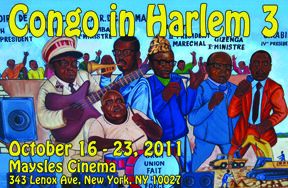The Upsetter: The Life & Music of Lee Scratch Perry
/Sunday, April 3rd, 7:30pm
Keeling's Caribbean Showcase
Curated by Keeling Beckford of Keeling's Reggae Music and Videos
The Upsetter: The Life & Music of Lee Scratch Perry
Dir. Ethan Higbee & Adam Bhala Lough, 2008, 90 min.
An in depth exploration of one of the most fascinating and influential artists of our times, Lee Scratch Perry. This documentary probes into Perry's mysterious youth as well as the notorious events of his peak production years in Kingston. Scratch mentored a young Bob Marley, created the sound of Reggae as we now know it, pioneered a new genre of music called Dub, invented what was to become the remix and produced international hit songs for artists from Junior Murvin to The Congos to Paul McCartney to The Clash all while working out of the infamous Black Ark Studio, a shack that he built with his hands then later burned to the ground in a fit of drug addled rage. Equally a documentation of a musical culture and a fascinating character study of genius and madness, The Upsetter is a sight and sound clash of visual and aural styles, utilizing archival footage, photographs, concert video, audio clips, music video clips both old and new, and an exclusive, candid interview with the mastermind himself at his home in Switzerland. Filmed in Jamaica, London, Switzerland, New York, San Francisco, Los Angeles and Colorado, The Upsetter charts Perry's influence on all reaches of the globe.
After the Movie: Q&A with co-director Adam Bhala Lough
Reception Sponsored by Sugar Hill Ale





